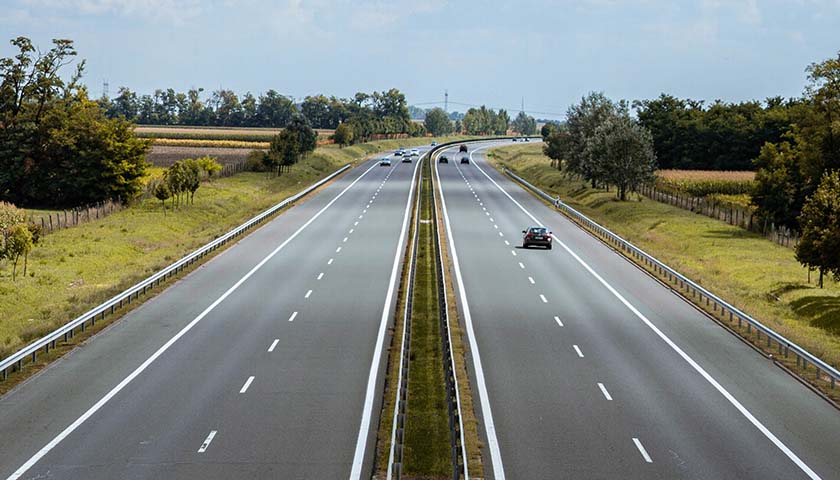Virginia’s state-owned transportation infrastructure is improving, ranking the state 13th among the rest of the U.S. for pavement condition. Bridge condition lags somewhat, ranking 17th, but more than 25 percent of the Commonwealth’s bridges are close to being ranked structurally deficient, the Joint Legislative Audit and Review Commission (JLARC) reported to legislators on Monday.
“You may recall that there was interest in taking a look at the state’s revenue streams, planning process, and infrastructure condition after a series of major legislative actions over the last five years or so,” JLARC Director Hal Greer said. “As you’ll hear, the state’s revenue picture has improved, and recent changes have made the state’s planning process more rigorous, and based on objective data. We have, though, identified some important, but relatively minor changes to be considered to better address some of the state’s transportation needs.”
Locally-maintained infrastructure is worse, with only about 67 percent of pavements in sufficient condition, compared to 83 percent of Virginia Department of Transportation- (VDOT) maintained roads. The area around Richmond is the worst, with only 56 percent of lane miles in sufficient condition.
JLARC also found that newly-passed revenue streams including increased fuel taxes and highway user fees for fuel-efficient and electric vehicles would help offset otherwise decreasing revenues as fuel consumption decreases. An opt-in mileage-based user fee program also has potential, but JLARC warned that potential users are wary of the kinds of data collection needed for the program.
In Fiscal Year 2022, 29 percent of revenue for transportation is from state sales and use tax, 29 percent from the state motor fuel tax, 21 percent from vehicle sales tax, and 21 percent from other sources. Other money comes from federal, regional, local, and other sources.
“If you look back before 2020, the needs of Virginia’s transportation system were projected to outpace revenue,” JLARC Chief Legislative Analyst Mark Gribbin said. “Fuel tax revenues were flat and projected to begin declining over the long term.”
He said, “In response to these concerns, the 2020 General Assembly passed legislation that increased and expanded fuel taxes, indexed those taxes to inflation, and created new highway user fees, along with several other changes. Those 2020 changes appear to have effectively address gaps in the road maintenance budget, and reversed the decline in funding for multi-modal improvements.”
The commission recommended that legislators amend the Code of Virginia to ensure data privacy for users of the program. It also recommended that legislators change the Code to allow the State of Good Repair program to fund bridges that are close to structural deficiency.
JLARC’s executive recommendations include updating Virginia’s needs identification process to better identify transportation corridors of regional significance. They also include distributing part of the Fiscal Year 2021 transportation surplus to the transit capital system, which faces a potential funding shortfall in the next five years.
Other policy options include a change in the highway user fee to include a regional surcharge and user fees for heavier electric vehicles weighing more than 10,000 pounds, improving consistency and avoiding revenue gaps.
JLARC presented the report shortly after Congress passed the bipartisan infrastructure bill, which is expected to help fund some Virginia projects.
The report comes at the end of Democratic control of Virginia’s government. Incoming Republicans are evaluating potential policies like fuel tax reduction as Virginians see rising costs including gas prices.
“In many respects, this study reflects the partnership that I believe that we have had in transportation with the General Assembly over what has been nearly four years, which is somewhat hard to believe,” Governor Ralph Northam’s Secretary of Transportation Shannon Valentine said.
Senate Finance Committee Chair Janet Howell (D-Fairfax) said, “This is basically a good news report and I’m very relieved that it is. A number of us made politically very difficult votes in order to get funding to do many of the projects you’re talking about, and I hope nothing happens in the next few years that would set us back again, because once you get behind, it’s much more painful to get back into a good situation than if you stay there in the first place.”
– – –
Eric Burk is a reporter at The Virginia Star and The Star News Network. Email tips to [email protected].








